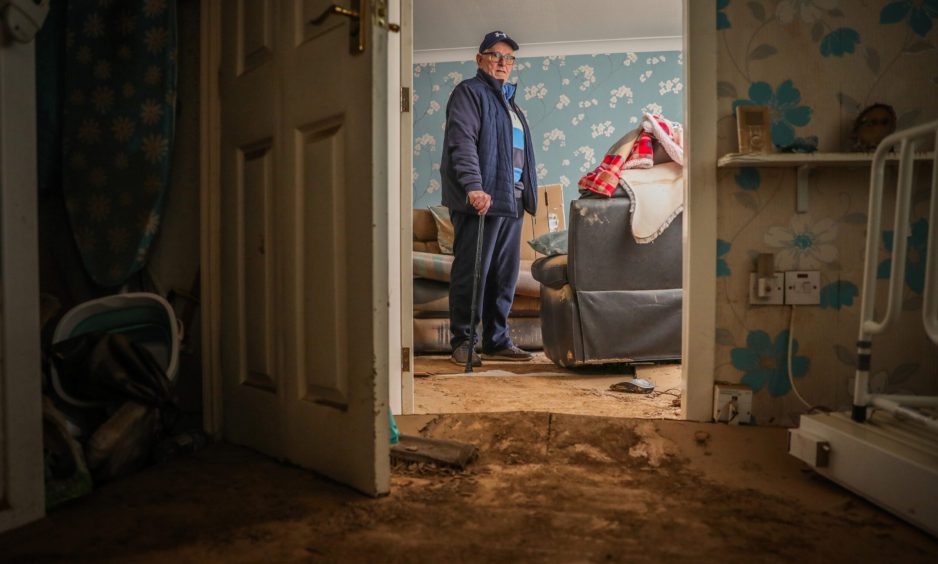
Mud, mould and an all-pervading smell of damp – the aftermath of Storm Babet in Brechin is a living nightmare.
Eight weeks have passed since the South Esk river burst its banks, overwhelming the town’s flood defences, and gushing into homes and business properties.
With Christmas fast approaching, many people are still struggling to come to terms with the disaster.
David and Isla Scott were trapped in the attic with their two dogs as their home was engulfed by rising flood waters.
Flashing torches to attract attention, the couple were eventually rescued by boat, but it was a terrifying three-hour wait.
“At five in the morning, I heard ‘gurgle, gurgle’,” recalls David, a retired engineer.
“That was air being emitted from the bath plughole and toilet. Then water started gushing in through the air bricks, and up through the walls. The noise was horrendous.”
David describes the force of the water as “like a tsunami”. Pulling on his waders, he ushered Isla and the couple’s two cocker spaniels into the attic.
Within minutes, and with about four feet of dirty, contaminated water inundating the bungalow, furniture started to tip and float.
David searched for valuables, but time was of the essence. It wasn’t until later that he found treasured photo albums and documents, including birth certificates drenched and coated in mud.
Rotting carpets
The garden is piled high with rotting carpets and underlay when I visit. Inside, laminate flooring buckles and warps, while everything is covered in a layer of mud.
An in-built kitchen bin is filled with rank, brown water, and the contents of the fridge and freezer fester.
Two dehumidifiers run 24/7, and work to strip out the property – at East Mill House Gardens – has begun.
David and Isla are staying in a flat in Brechin – and they’ve been told they could be out of their home for 18 months.
Christmas is the last thing on their minds. Instead, they focus on salvaging what they can. For David, that means attempting to save his dad’s joinery equipment – “that has huge sentimental value” – ripping up tiling and drying out the garage.
They are insured, but still, they fear for the future. “What happens next?” says David. “There’s no quick fix here and nobody seems to have any answers.
“We feel we’ve been forgotten about just because we’re not River Street. But the flood hit us hard.”
Damp, rot and mould
Fuzzy white and green mould frames a photograph of Ian Stewart’s granddaughter, which hangs limply on the wall of his River Street home.
The 82-year-old can’t bear to touch it. His house was among the worst hit by flooding.
“We lost everything,” he laments, looking around at the sodden, mud-soaked, mouldering contents of his home.
“There was five feet of water in here – it was about chest high. The mud was so thick my grandson had to dig it out with a shovel.”
Ian initially vowed to stay put in his home, despite getting an evacuation order from Angus Council.
He feared his wife, Jane, who was ill and has arthritis, would struggle, and hoped that the fact he’d built a wall round his garden and installed a floodgate would keep the flood waters at bay.
“We thought we could just stay upstairs,” says the grandad-of-two. “But about 7.30pm, the coastguard and fire service told us it was much worse than expected and there was no way we could stay.”
The couple spent a night in Brechin Community Campus, before moving to rented accommodation in Forfar. The first they saw of their flooded home was when a police officer showed them photos on his phone.
“I couldn’t believe the damage,” Ian laments. “I’ve lived here 38 years and it’s never been as bad. The street has flooded a few times. But this time it’s gone upstairs.”
Visiting his devastated home is not easy.
It’s yet to be emptied and no attempts have been made to dry it out or clean it. It’s not somewhere you want to linger – the air is tinged with damp, rot and mould, and the smell takes your breath away.
Having lost the entire contents of his home, what really upsets Ian is losing cherished family photos and his beloved dog’s ashes.
“They were in a plastic bag inside a suitcase, but that got drenched,” explains Ian, a retired quality control baker for Macphie’s of Glenbervie.
“It’s horrible seeing it like this. There are cracks down walls, peeling wallpaper, and mud and silt even on top of the kitchen units.”
Ian isn’t sure what the future holds. Even if his house is salvaged, he’s not sure he wants to live in it – and fears nobody would buy it.
“We’re too old for these capers,” he frowns. “When they built the flood wall in 2016, my wife said: ‘Isn’t it fine going to bed and not worrying about the water coming over. But on October 19, it was 1.5m above the wall.”
As for Christmas, Ian predicts it will be a damp squib. “Jane loves Christmas – she keeps decorations in the bedroom,” he says. “She’s not taking them – they’re surely covered in mould and we don’t have the heart for it.”
I remark that the River Street area of Brechin seems like a ghost town, with so many homes evacuated.
Ian laughs. “It’s like that now, but when the rain’s on, and it’s coming to flood time, this is the busiest street in the world. People come to gloat. They stand there, hoping the water goes in the house.”
Hit by a wall of water
Euan Clark feared he would drown when his River Street home flooded.
Dressed in shorts, he scooped up his collie, Sasha, waded through the filthy water, and made a dash for safety.
“I was in survival mode,” he recalls. “When I opened the front door, the water wiped me clean off my feet. It’s a miracle nobody drowned.”
Initially staying with his parents, and now in a rented flat in Montrose, all Euan’s possessions were destroyed in the flood.
However, he reckons it was a phone call from his dad that saved his life. Along with other River Street residents, he had a knock at his door from coastguard teams suggesting he leave his property as water levels rose.
He decided not to leave, going to bed around 1.30am. His dad, Johnny, rang him at 4am, frantic with worry and begging him to leave.
“I was sound asleep. But when Dad called, I could hear the rush of water,” he says. “It was about a foot deep in the house, but when I opened the door I was hit by a wall of water and knocked over by the sheer force of it.”
With 14-year-old Sasha lifted above his head, he waded through the freezing,
chest-height water – and as he ventured further outside, it was almost up to his neck.
“The house is a mess,” he laments. “There’s mud everywhere. It stinks like a football changing room. Doors have bowed and flooring has warped. There’s nothing salvageable.”
Euan says he couldn’t afford insurance as his address is in a high flood-risk area. And he’s frustrated at what he deems to be Angus Council’s lack of action.
“It’s really stressful – we’re not being told what’s happening,” he says. “After all these weeks, it’s like Brechin’s been forgotten. It’s a living nightmare.”
‘I’ve lost over £25,000’
I catch up with Maciej Lesiecki as he’s heading to his workplace – Mirror Image
Auto Detailing Studio on East Mill Road.
He’s just been to the doctor to get antibiotics for a chest infection he reckons developed as a result of being forced to clean up his damp, freezing garage for weeks on end.
Inside the studio, the floor is cracked, plaster on the walls is swollen, and posters of prestige cars curl at the edges.
An outdoor courtyard Maciej built for customers is destroyed and full of rubbish washed in by the swollen river.
“Huge water came from River Street at about 3.45am,” says Maciej, pausing to cough violently. “There was no time for action.
“There was 1.5m of water in my studio within 10 minutes. Everything was floating – cabinets, vacuum cleaners – and three customers’ cars were written off, plus my van. I went to the office and jumped on to the table to wait.”
Rescue boat
At 9am, Maciej was picked up by a rescue boat and taken to safety.
His business is not insured for flooding and since Storm Babet, he’s had no income.
He’s been cleaning round the clock, in a desperate attempt to build his business back up. His landlord gave him a dehumidifier and he was able to borrow an industrial heater. Both have been on 24/7 and he fears he will struggle to pay the electricity bill.
With no power during the flood, 20 tropical fish Maciej kept in a tank in his studio died.
“I’ve lost over £25,000,” he says. “All machines, all equipment, the fish – everything is gone.”
What about Christmas? “The bills keep coming so I won’t be having Christmas this year,” says Maciej.
He fears this is “just the beginning” of the nightmare. “Things are beginning to crack and swell,” he says. “I think as time goes on the damage will show itself truly.”
Huge tsunami
Scott Murray, the owner of East Mill caravan park, saw decades of hard work swept away within a few hours.
The caravans and chalets on his site were deluged – many were ripped from their levelling blocks – and none have been salvageable. He’s in the process of breaking them down for scrap.
Scott, whose father set up the caravan park in 1965, fears nobody will want to return – there’s the nagging fear that this could happen again.
“Around 5am, water started to bubble up here,” he recalls. “I thought I could handle it with pumps, but as I got into my waders there was a noise and a rush of water – the old wall collapsing at the back of the Inch, about half a mile away.
“Then there was this huge tsunami rushing through. The force of the water was fierce.”
Some residents, trapped in their caravans, afraid to head out into the water, had to be rescued by boat.
“Once everything’s cleared out, we’ll see what happens,” muses Scott, whose house
was also lost during the storm.
“It’s a monumental job. A lot of people won’t come back. Until the council does something, we won’t know what the future holds. The land is completely worthless.”
Living in a sewer
It’s not only flooded residents who have been badly affected. Some who live above waterlogged properties have found their homes becoming damp and mouldy.
One woman who lives at Nursery Park, but doesn’t wish to be named, said: “The flat below me was flooded and is still full of wet furniture. As a result, my flat is freezing and damp and I have mould growing on my furniture, walls and belongings.”
The woman said she spoke to Angus Council “weeks ago” and that “nothing” has been done.
She also contacted The Crickety, a Brechin-based community space which set up a flood relief fund, about a grant to replace some of her contents and to help with the exorbitant costs of heating needed to help dry out her property. She was told grants are only available for ground-floor properties that had been flooded.
Another resident complained of contaminated mud in her driveway and sheds. “It’s like living in a sewer and nothing is being done,” she added.
Brechin community rallying
Christmas won’t be the same for folk forced out of their homes, but the Brechin community has been rallying together to help.
The Facebook group, Brechin Flood Help, encourages people to donate everything from clothing to furniture.
Meanwhile, an appeal organised by Brechin business Royalux Competitions has raised £30,000 to help Storm Babet victims.
Brechin flood prevention
The devastation in Brechin came seven years after a £16.3 million flood prevention scheme which promised to protect the town “for generations to come”.
The project saw flood walls and embankments constructed along the South Esk, plus upgrades to the drainage system and three underground pumping stations. It was hailed as a “one-in-200-years” standard of defence.
However, while the flood defence wall was built to sustain 3.8 metres above normal river level, Storm Babet brought 4.4m of water.
Brechin independent councillor Jill Scott said there needs to be a “long-term solution” to flooding, adding: “We can’t look at areas in isolation as it pushes the problem further downstream. We need to work together to protect lives and properties.”
Insurance, meanwhile, is a sensitive issue. Many homes and businesses weren’t covered for floods due to previous incidents.
Those that have will likely see the cost of their cover skyrocketing.
Businesses in Angus are eligible for a £3,000 Scottish Government grant but, with so much devastation, many fear that won’t stretch far.
We contacted Angus Council in response to the issues raised in the piece and the Administration sent us a statement promoting some of the funding that is now available to residents affected during the flooding.
Grants of £1,500 are available to those whose primary residence flooded during Storm Babet.
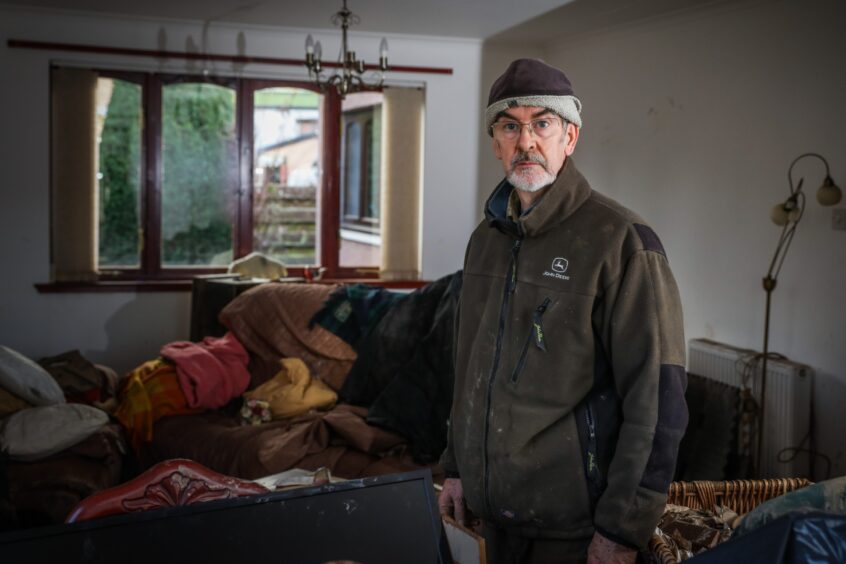
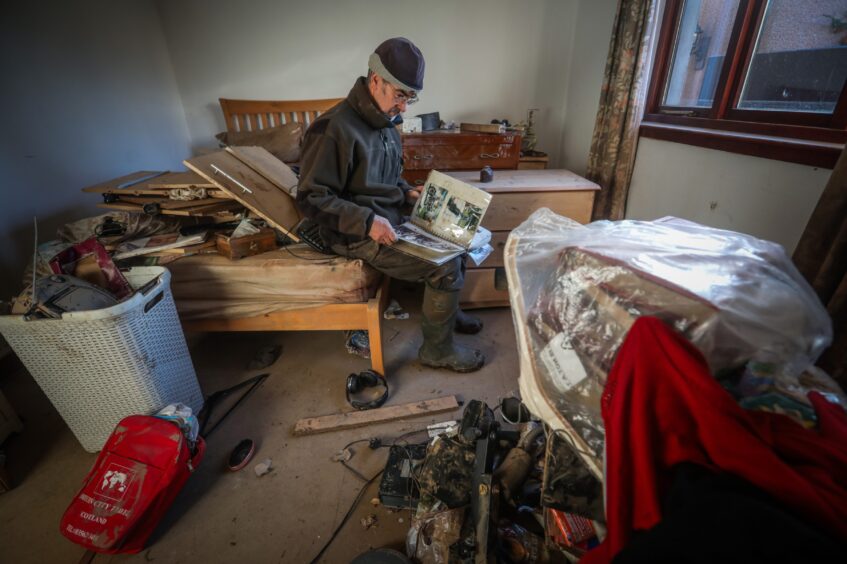


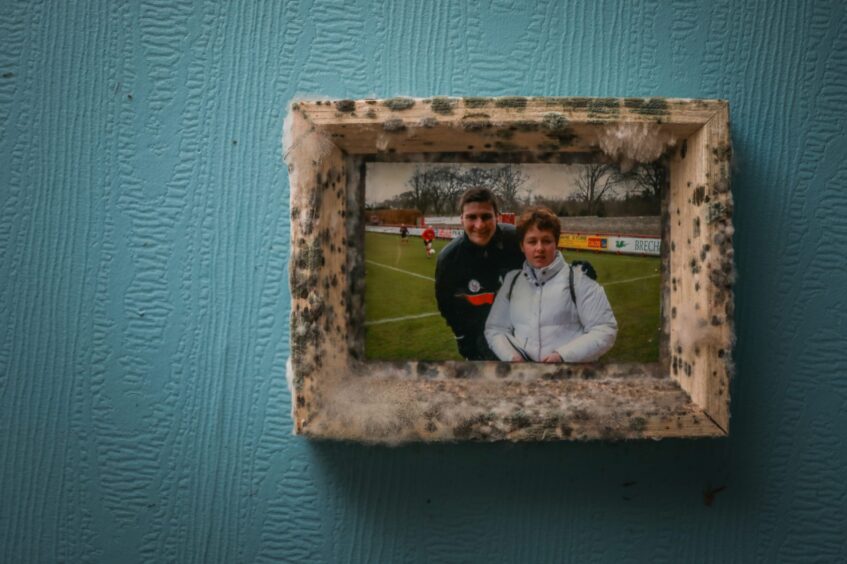
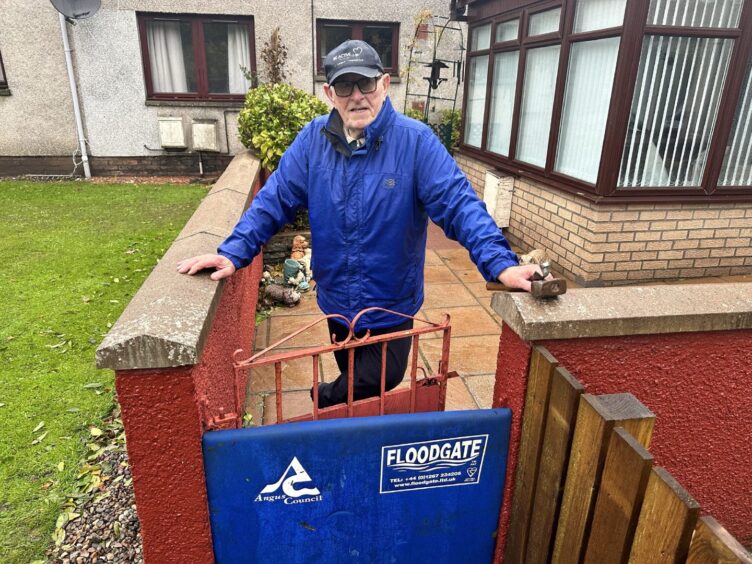
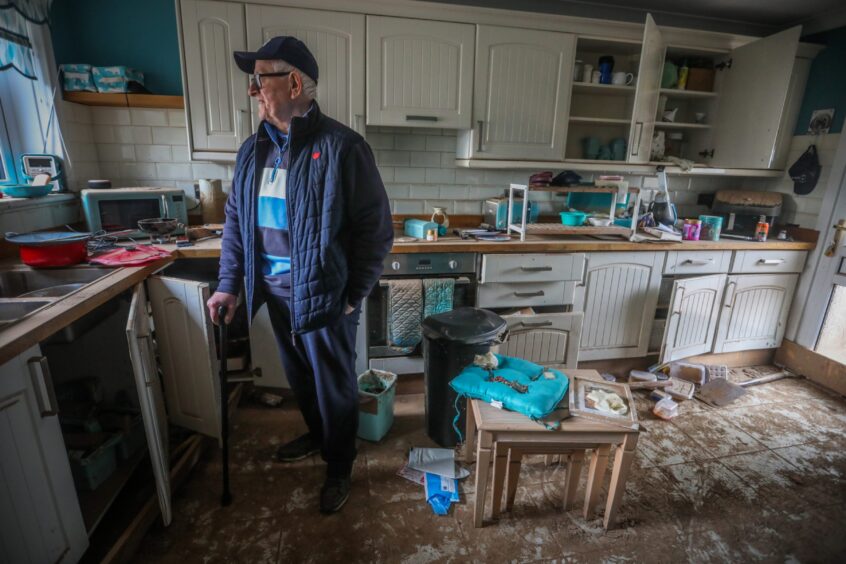
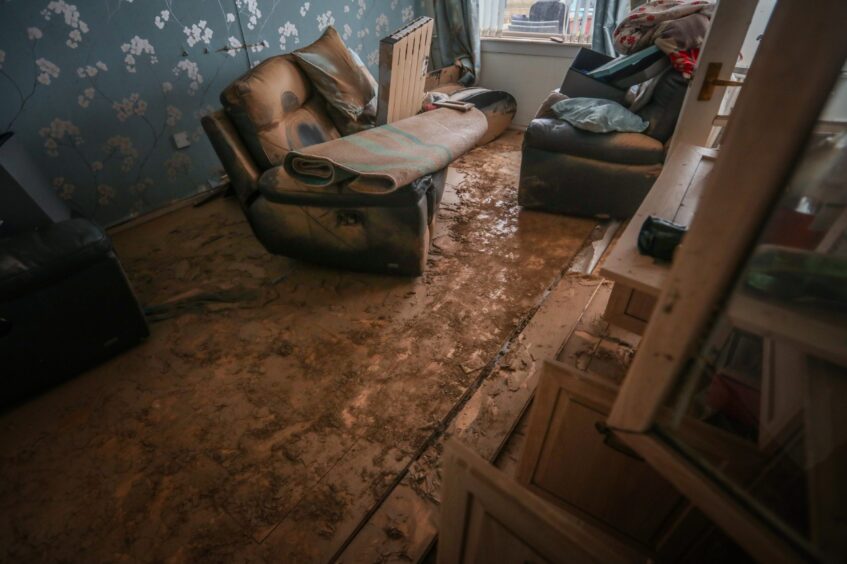

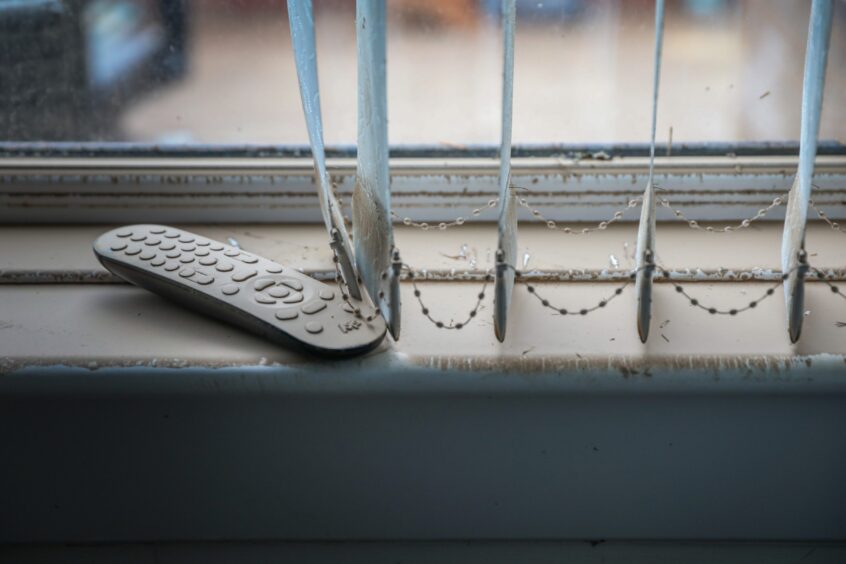
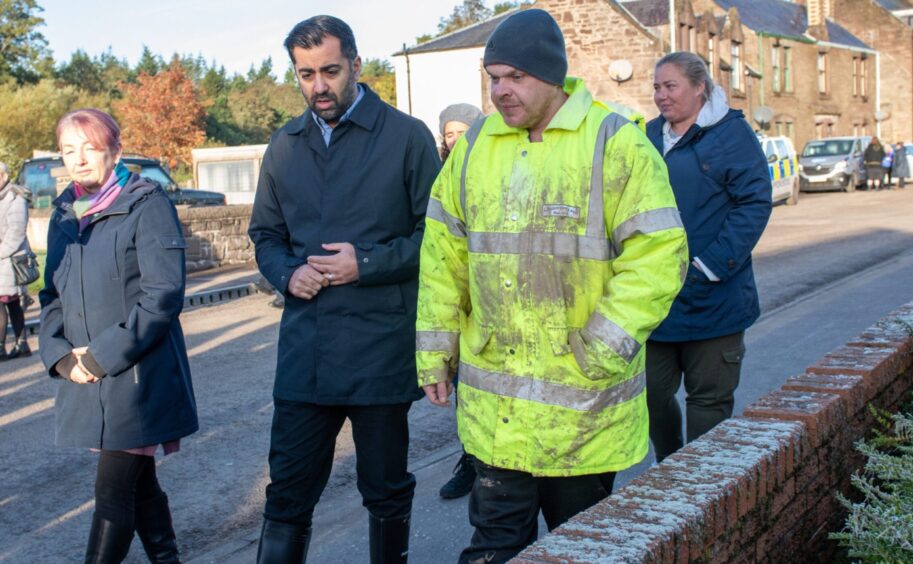
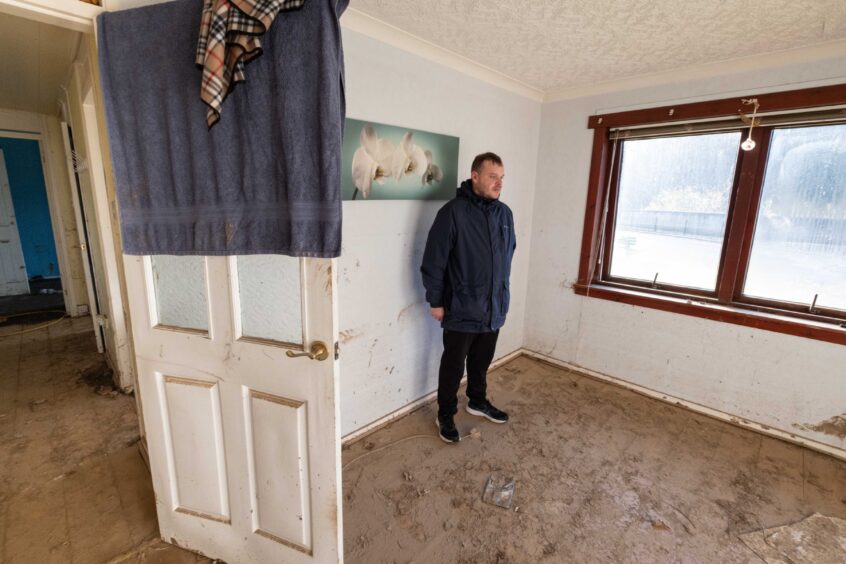
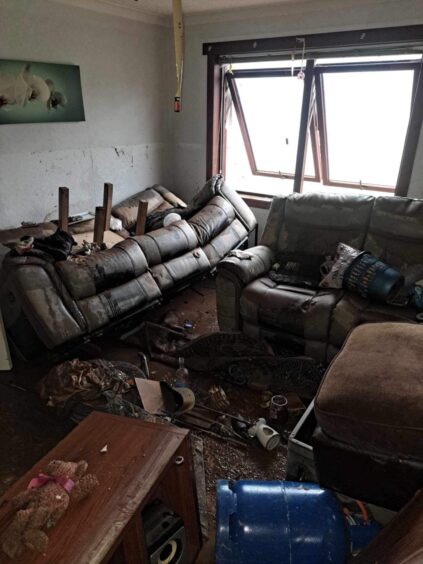

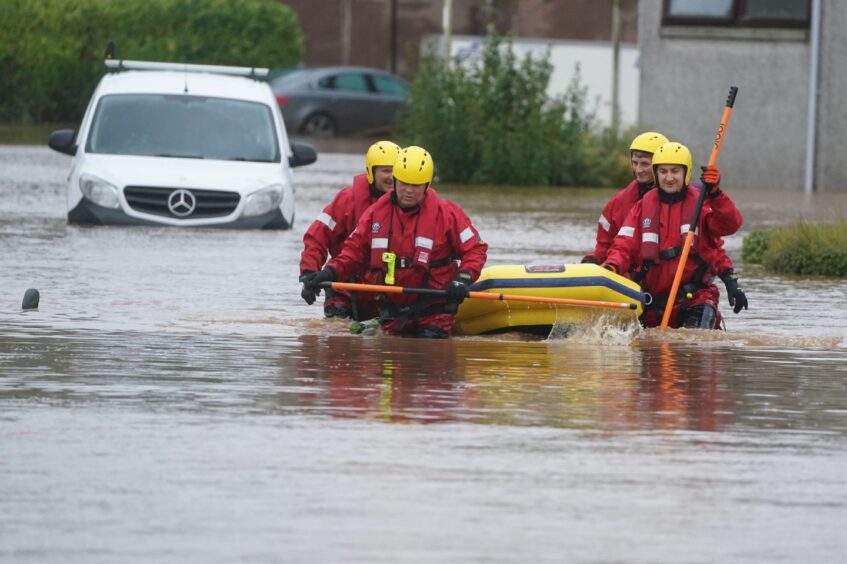

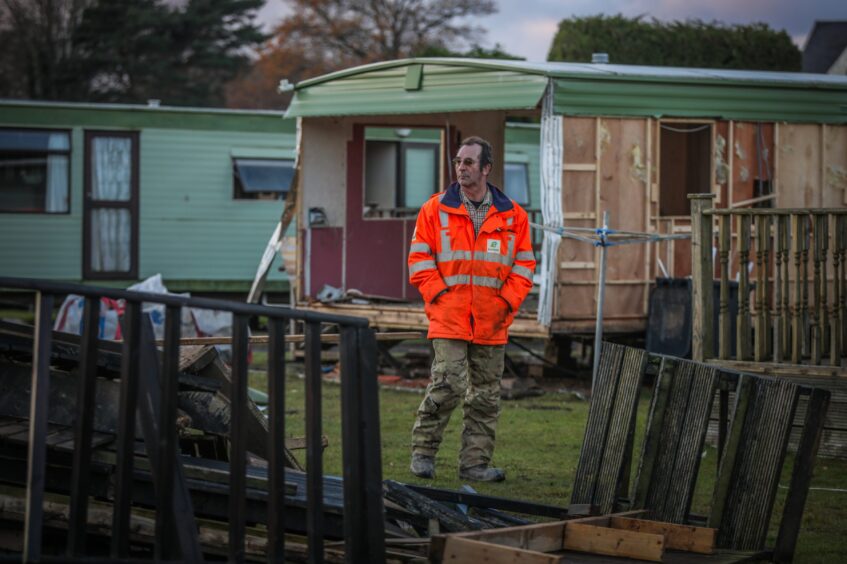
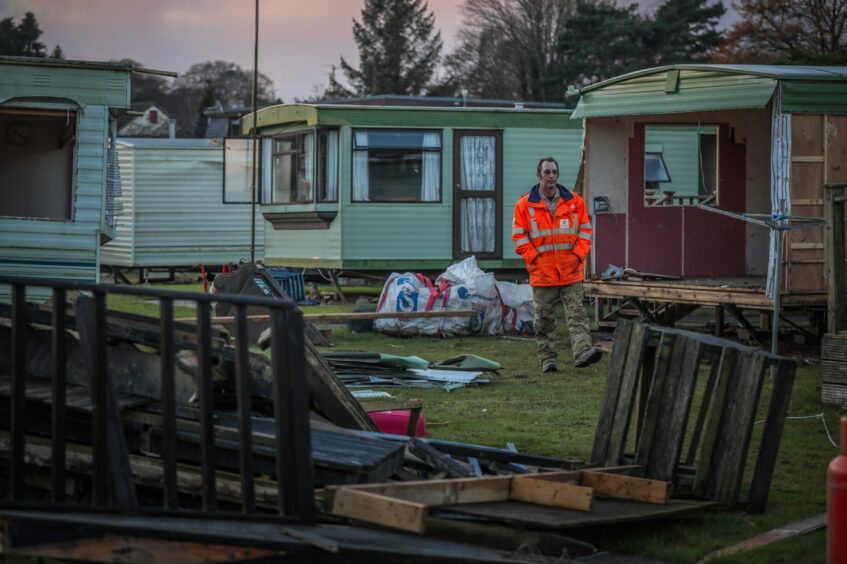
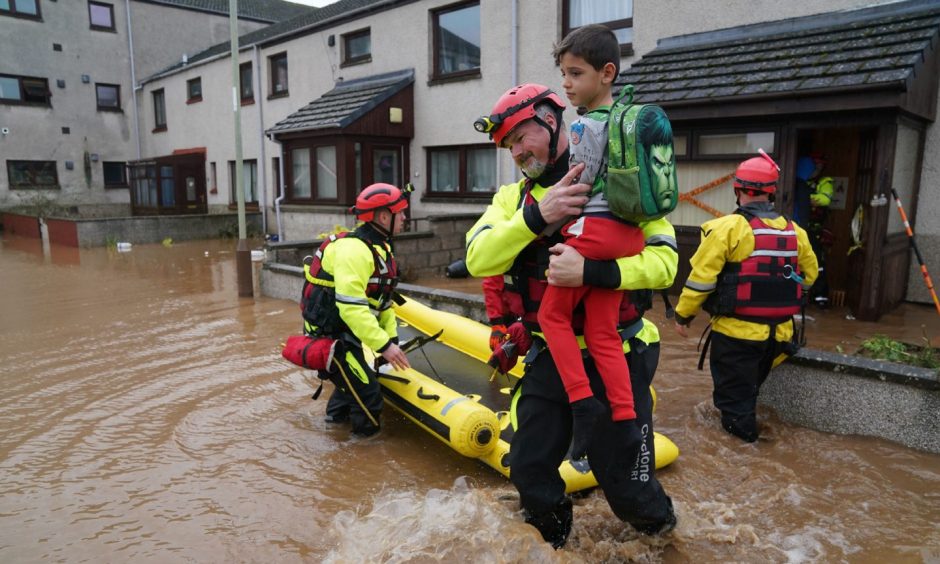
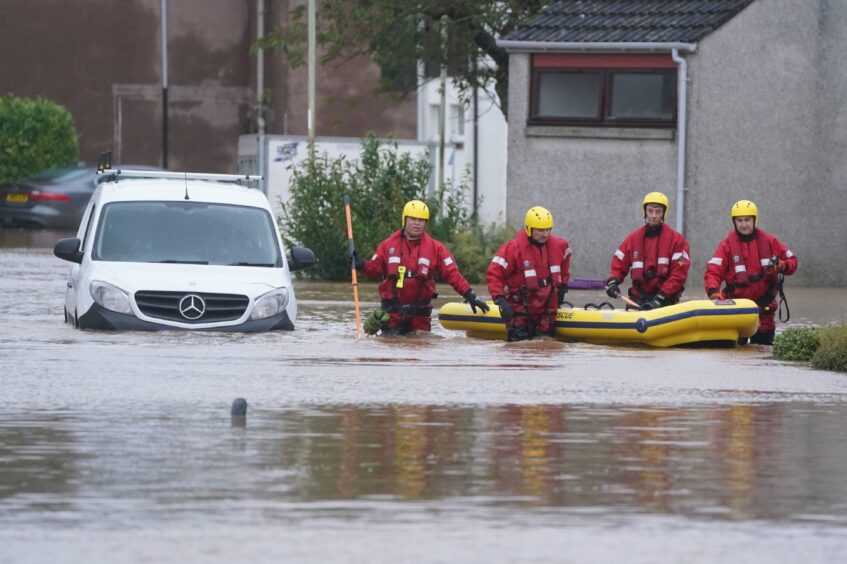
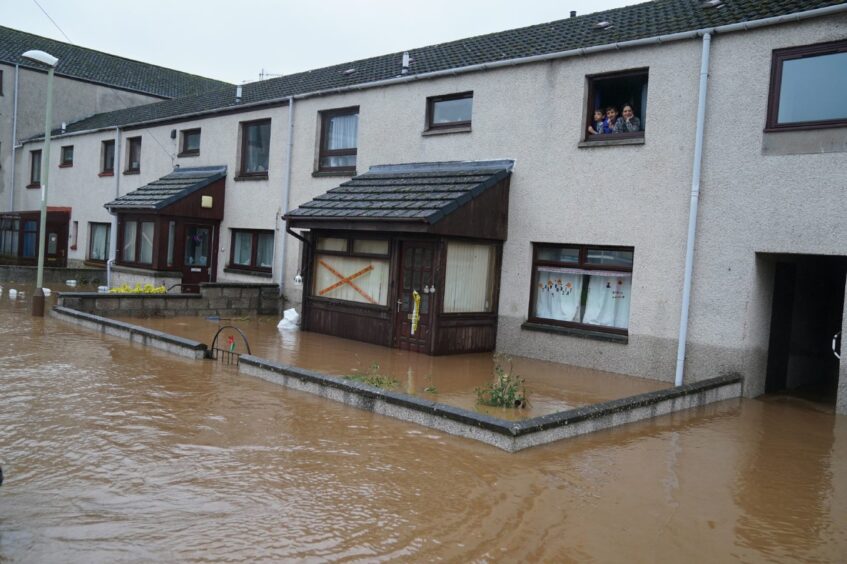
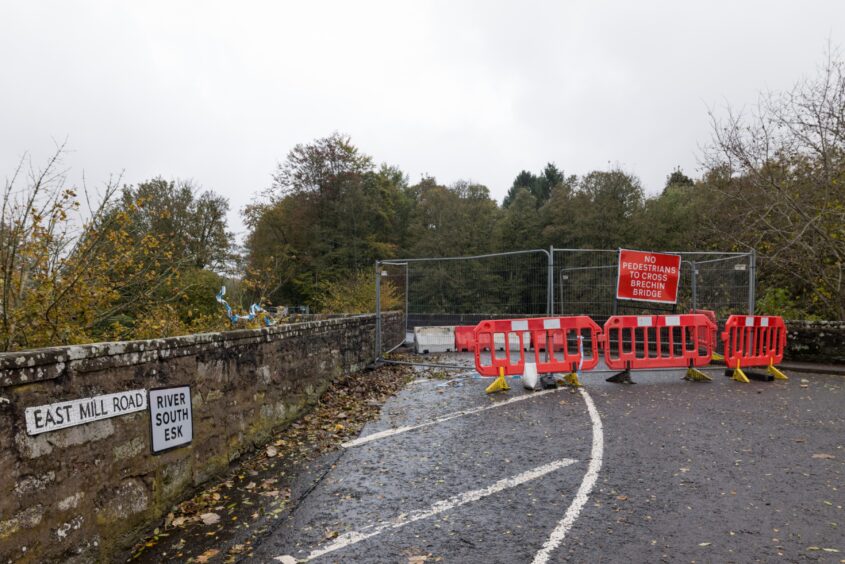
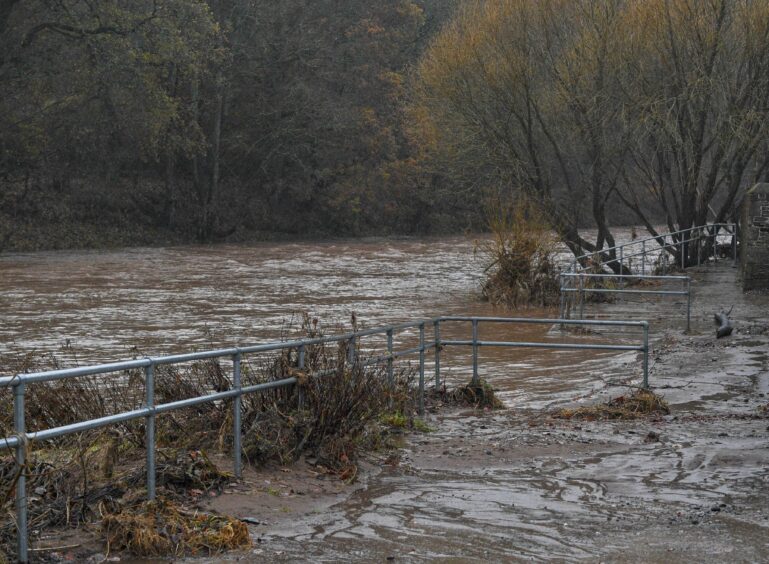

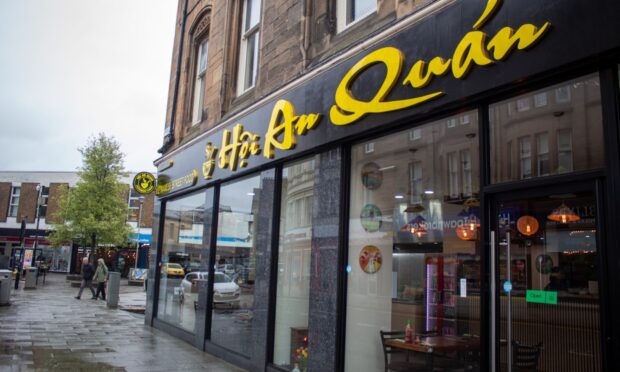







Conversation